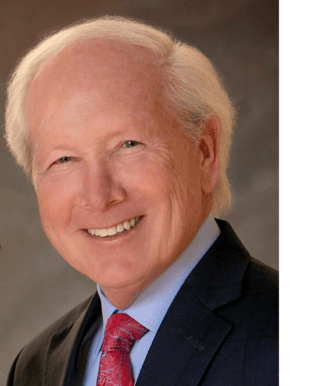The Case for Authenticity
Last Updated January 31, 2022

Written by: Dennis Swan, Contributor
According to the 2021 Hospital CEO Turnover Report by the American College of Healthcare Executives, the national CEO turnover rate was 16% for 4,399 hospitals in calendar year 2020. Ultimately, in each case, a qualified person will be hired from the outside, or promoted from within, to become the next Chief Executive Officer. The successful candidate will need to distinguish themselves from other applicants. A key way will be by persuading the search committee that their values, character, skills, and experiences closely align with the organization’s needs, desired culture, and strategic vision. Upon successfully completing the interview and selection process, the new CEO will then face a far more formidable challenge. They must convince virtually everyone that the CEO can be trusted to lead.
Authentic Leadership Values
The new CEO needs to get to know people throughout the organization as more than employees. Equally important, they should be willing, comfortable, and open to letting people get to know them as more than simply the new CEO. The best advice is to avoid trying to be someone else. As Robert S. Kaplan has observed: “Authenticity is critical to leadership. That means trying to be yourself—this involves some self-disclosure, admitting what you don’t know and being willing to ask questions.” A leader, who values their authenticity, never needs to act like the smartest person in the room.
A two-step process is recommended. First, the newly appointed leader must identify, and clearly articulate, key personal standards, values and beliefs which closely align with the organization. People need to know far more than the CEO’s position power, past accomplishments, and goals. The team wants to know who the new leader actually is, whether people can expect fair treatment and why the new executive is worthy of being their leader.
In step two, the new leader openly shares the personal commitment to authenticity. Doing so is an invitation to all members of the team to provide timely, honest, and candid feedback about a leader’s actual track record of walking the talk. As leadership author Lance Secretan has written: “Authenticity is the alignment of head, mouth, heart, and feet—thinking, saying, feeling, and doing the same thing—consistently. This builds trust and followers love leaders they can trust.”
Authenticity and other key personal and organizational values, especially honesty and integrity, are absolutely essential to help ensure proper leader and staff conduct. Why? Because policies and procedures are not available to guide people in every interaction between staff members or involving staff members and stakeholders (patients, clients, customers, or others). Key values, and the related behavioral criteria, serve as an internal guidance system for people to do the right things despite often working in settings without close and immediate supervision.
Practicing What You Preach
Leaders and teams are challenged to achieve key results at, or above, targeted levels (such as for quality, service excellence, market share, productivity, and financial performance). People learn by experience that focusing solely on the desired end results will often be less effective than ensuring fundamental processes are done in a systematic, disciplined, values-centered manner. Strong and ethical performance relies upon leaders who always treat others appropriately, in every interaction. How people conduct themselves and treat others will help determine the nature and quality of staff member and stakeholder experiences which, ultimately, define and impact organizational success.
Being authentic and consistently walking the talk are recommended to effectively work with, lead, and influence others. There is an additional reason for a new, or long-tenured, leader to do so. Virtually each day, we learn that microphones should always be treated as being “live.” Furthermore, bystanders are seemingly anxious to widely share a recording, photo, or video of a regrettable event, altercation, or misstatement. Leaders and others who take a values-based approach to their work and every interaction are far less likely to have to later apologize for their behavior.
The comedian George Burns once said: “The key to success is sincerity. If you can fake that, you’ve got it made.” None of us are perfect and mistakes are made. However, people tend to trust leaders who consistently treat others with dignity, courtesy, kindness, and respect while always keeping their promises. No one has ever been able to fake sincerity, or authenticity, throughout a career…but why, as a leader, would you want to try?
Bio: Dennis A. Swan became Sparrow Health System President and CEO in June 2005 after serving as interim president beginning November 1, 2004. He retired January 2, 2019. A member of the Sparrow executive team over 37 years, Swan previously served as Sparrow’s Senior Vice President of Operations and Chief Operating Officer.

Swan is a Life Fellow in the American College of Healthcare Executives. His is a Past Board Chair of Affirmant Health Partners, the Caymich Insurance Company, Ltd., the Michigan Health and Hospital Association (MHHA), the Lansing Economic Area Partnership (LEAP), and the Capital Area United Way.
Among his awards are: AHA Grassroots Champion, MHHA Meritorious Service, Boy Scouts Distinguished Citizen, LEAP Legacy, United Way Outstanding Volunteerism, and Western Michigan University Alumni Outstanding Achievement.
Dennis graduated manga cum laude from Western Michigan University with a bachelor of arts degree. He earned his law degree, with honors, from Western Michigan University Cooley Law School. Prior to joining Sparrow in 1981, he had a 12-year career with two leading bank holding companies.


